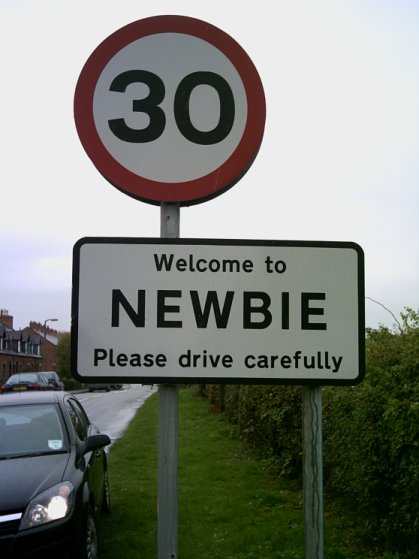Anonymous proxy server who is running it? And why?
FYI newbies- Many technologies that amateur anonymity fetishists are attracted to are actually designed to harvest information.

If you wanted a concentrated haul of the most interesting information what would you do?
You would establish a honeypot: a service (free or paid) that purported to provide an anonymous web browsing/email capability. Who knows what people might get up to if they thought nobody was looking? That, of course, is the idea with honeypots.
Cryptogon - Nerds with too much time on their hands get up to all kinds nonsense.
Do they set up anonymous proxy servers and open base stations just to see what people do with them? Yes.
Do criminals do it to find out personal information about you? Yes.
So even if the proxy or base station you're on isn't run by the NSA, who is running it? And why?
High-Traffic Colluding Tor Routers in Washington, D.C., and the Ugly Truth About Online Anonymity It's an old essay, but it has held up remarkably well.
Wired WikiLeaks, the controversial whistleblowing site that exposes secrets of governments and corporations, bootstrapped itself with a cache of documents obtained through an internet eavesdropping operation by one of its activists, according to a new profile of the organization's founder.
The activist siphoned more than a million documents ... supposedly stolen by Chinese hackers or spies who were using the Tor network to transmit the data, were the basis for WikiLeaks founder Julian Assange's assertion in 2006 that his organization had already "received over one million documents from 13 countries" before his site was launched, according to the article in The New Yorker.Only a small portion of those intercepted documents were ever posted on WikiLeaks, but the new report is the first indication that some of the data and documents on WikiLeaks did not come from sources who intended for the documents to be seen or posted. It also explains an enduring mystery of WikiLeaks' launch: how the organization was able to amass a collection of secret documents before its website was open for business.
Tor is a sophisticated privacy tool endorsed by the Electronic Frontier Foundation and other civil liberties groups as a method for whistleblowers and human rights workers to communicate with journalists, among other uses. In its search for government and corporate secrets traveling through the Tor network, it's conceivable that WikiLeaks may have also vacuumed up sensitive information from human rights workers who did not want their data seen by outsiders.
The interception may have legal implications, depending on what country the activist was based in.
In the United States, the surreptitious interception of electronic communication is generally a violation of federal law..." Read more from Wired




